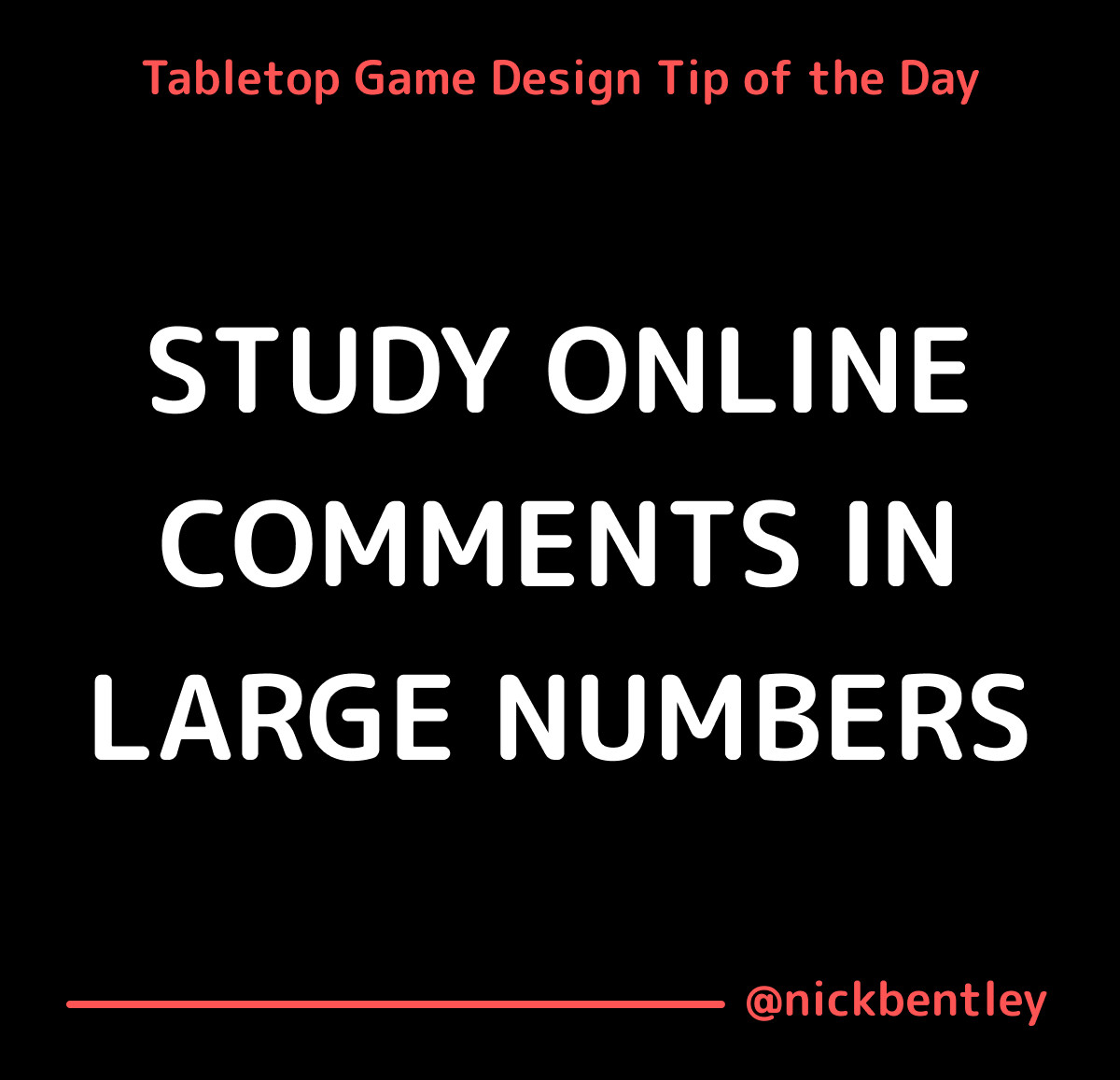I think this is one of the most powerful tips I can offer.
Each comment about a game is like a pixel: it tells you close to nil.
But thousands of pixels add up to a picture, which can be turned into understanding and insight with careful analysis, interpretation, and reflection.
🎲✂️🧵(1/4)
Each comment about a game is like a pixel: it tells you close to nil.
But thousands of pixels add up to a picture, which can be turned into understanding and insight with careful analysis, interpretation, and reflection.
🎲✂️🧵(1/4)

Comments
But it's also worth mentioning, that the majority of the actual data will always be missing. Reviews and comments are likely to be biased towards fans and players that care enough to write a review.
It doesn't mean you should ignore the passionate players, but being aware of the biases is as important as collecting the data.
It's not just having the data that's valuable.
Even more valuable is the act of aggregating it by hand:
It forces careful reading and reflection, from which insight springs.
(2/4)
When I've told other game designers how utterly transformative it has been for me, none have tried it for themselves.
Takes work, so I understand, but seriously, do not sleep on this.
How to get the most out of it:
(3/4)
Use comment analysis like the above to improve it further.
Then make new games by triangulating between the comment analysis, the principles document, and playtest results.
(4/4)
Admittedly "small-time designer", here, I guess. 😅